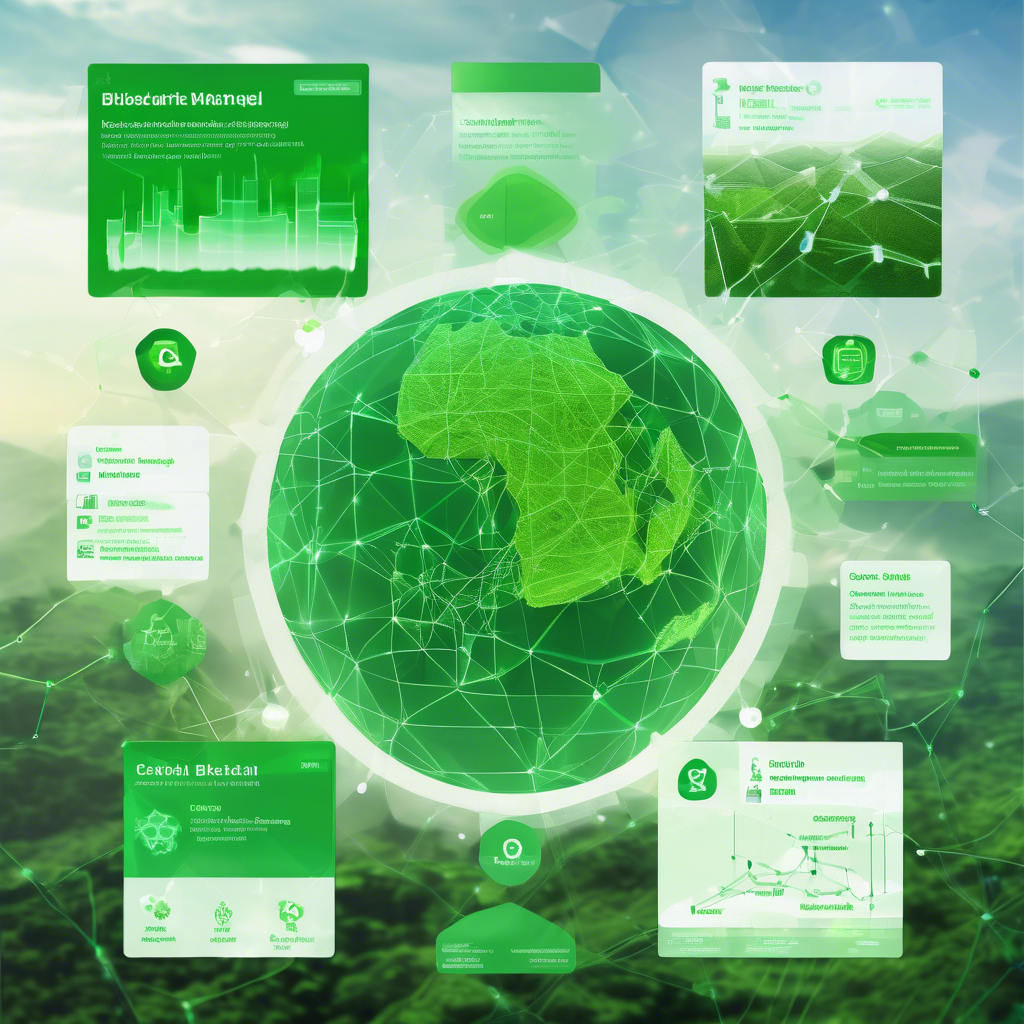World Economic Forum Confirms Crypto and Blockchain as Pillars of the Global Economy

The World Economic Forum (WEF) has confirmed that cryptocurrency and blockchain technologies will remain key components of the modern global economy. This affirmation highlights the profound transformation these digital innovations are driving across numerous sectors worldwide. The WEF's acknowledgment reflects the increasing acceptance and integration of crypto and blockchain as fundamental elements influencing economic strategies and business models in the 21st century. Over recent years, blockchain technology has progressed beyond its original link to cryptocurrencies like Bitcoin, evolving into a versatile platform for diverse applications beyond digital currencies. Sectors such as finance, supply chain management, healthcare, and governance are progressively utilizing blockchain’s decentralized and transparent features to boost efficiency, security, and trust. Meanwhile, cryptocurrencies have matured from speculative assets into widely recognized mediums of exchange, investment vehicles, and fundraising tools through initial coin offerings (ICOs) and security token offerings (STOs). Leading financial institutions, payment processors, and multinational companies are incorporating crypto-based solutions into their services, indicating rising acknowledgment of its potential to disrupt traditional financial frameworks. The WEF stresses the necessity for ongoing innovation within the crypto and blockchain arenas, alongside responsible regulation and collaboration among stakeholders. As these technologies underpin increasingly vital economic functions, ensuring security, scalability, and inclusivity becomes critical for sustainable development. Policymakers and industry leaders are urged to cooperate in creating frameworks that encourage innovation while safeguarding users and enhancing transparency. Furthermore, the Forum highlights blockchain’s role in promoting social and environmental goals.
Decentralized systems can improve supply chain traceability, allowing consumers to verify product authenticity and ethical sourcing. Additionally, blockchain can facilitate initiatives in emerging markets by granting financial access to unbanked populations, thereby fostering economic inclusion. Despite challenges such as concerns over energy consumption and regulatory uncertainties, momentum behind crypto and blockchain remains strong. Governments worldwide are exploring central bank digital currencies (CBDCs), representing a wider institutional acceptance of blockchain-based digital assets. The WEF’s position shows a recognition that crypto and blockchain are not fleeting trends but foundational technologies poised to continue reshaping industries, economies, and societies globally. Their integration into everyday economic activities is set to deepen, driving innovation and potentially fostering more resilient and transparent economic systems. As the digital economy grows, the convergence of blockchain with emerging technologies like artificial intelligence, the Internet of Things (IoT), and big data analytics is expected to unlock new opportunities and efficiencies. The synergy between these technologies could revolutionize data sharing, processing, and utilization, further embedding blockchain’s role within modern economic infrastructure. In summary, the World Economic Forum’s declaration underscores the lasting importance of crypto and blockchain technologies. Stakeholders across public and private sectors are advancing initiatives to harness these technologies responsibly and effectively, acknowledging their central role in the ongoing evolution and modernization of the global economy.
Brief news summary
The World Economic Forum (WEF) emphasizes cryptocurrency and blockchain as transformative forces reshaping the global economy by improving efficiency, security, and trust across finance, supply chains, healthcare, and governance. Blockchain, originally the basis for cryptocurrencies like Bitcoin, now supports various industries, while cryptocurrencies have shifted from speculative assets to widely accepted means of exchange and investment. Adoption by major financial institutions marks a shift in traditional finance systems. WEF highlights the need for innovation, responsible regulation, and collaboration to ensure these technologies are secure, scalable, and inclusive, fostering sustainable growth. Blockchain enhances social and environmental outcomes by increasing supply chain transparency and providing financial access to the unbanked. Despite challenges such as high energy consumption and regulatory hurdles, progress continues with governments exploring central bank digital currencies (CBDCs). Looking ahead, WEF envisions integrating blockchain and cryptocurrencies with AI, IoT, and big data to revolutionize industries, advocating their responsible use to modernize the global economy.
AI-powered Lead Generation in Social Media
and Search Engines
Let AI take control and automatically generate leads for you!

I'm your Content Manager, ready to handle your first test assignment
Learn how AI can help your business.
Let’s talk!

Zimbabwe rolls out blockchain-based carbon credit…
Zimbabwe has launched a blockchain-based carbon credit market initiative aimed at introducing greater transparency and efficiency into its ecosystem.

AI Models Reveal Insights into User Demographics
Large language models (LLMs) such as GPT, Llama, Claude, and DeepSeek have transformed artificial intelligence by showcasing remarkable fluency in conversational capabilities.

Space and Time Brings ZK-Proven Blockchain Data t…
As the Founder, Editor-In-Chief, and Creative Director of Blockster, I spearhead the development of engaging stories, partner with leading Web3 brands, and guide our forward-thinking product strategy.

Google Leaders Predict Arrival of AGI Around 2030
At the recent Google I/O developer conference, Sergey Brin, co-founder of Google, and Demis Hassabis, CEO of Google DeepMind, made a major announcement about the future of artificial intelligence.

FinCEN Targets Cambodia-Based Huione Group for Mo…
The U.S. Department of the Treasury’s Financial Crimes Enforcement Network (FinCEN) has officially designated the Cambodia-based Huione Group as a financial institution of primary money laundering concern.

AI-Generated Content Leads to Misinformation in N…
A recent controversy has arisen over a special feature called "Heat Index," a lighthearted summer guide published as a 50-page supplement in widely read newspapers—the Chicago Sun-Times and The Philadelphia Inquirer—and syndicated by King Features.

Ray Kurzweil's Humanoid Robot Startup Secures $10…
Beyond Imagination, an innovative humanoid robotics startup, has recently secured a substantial $100 million investment from venture capital firm Gauntlet Ventures during its Series B funding round.

 Auto-Filling SEO Website as a Gift
Auto-Filling SEO Website as a Gift








 Auto-Filling SEO Website as a Gift
Auto-Filling SEO Website as a Gift

